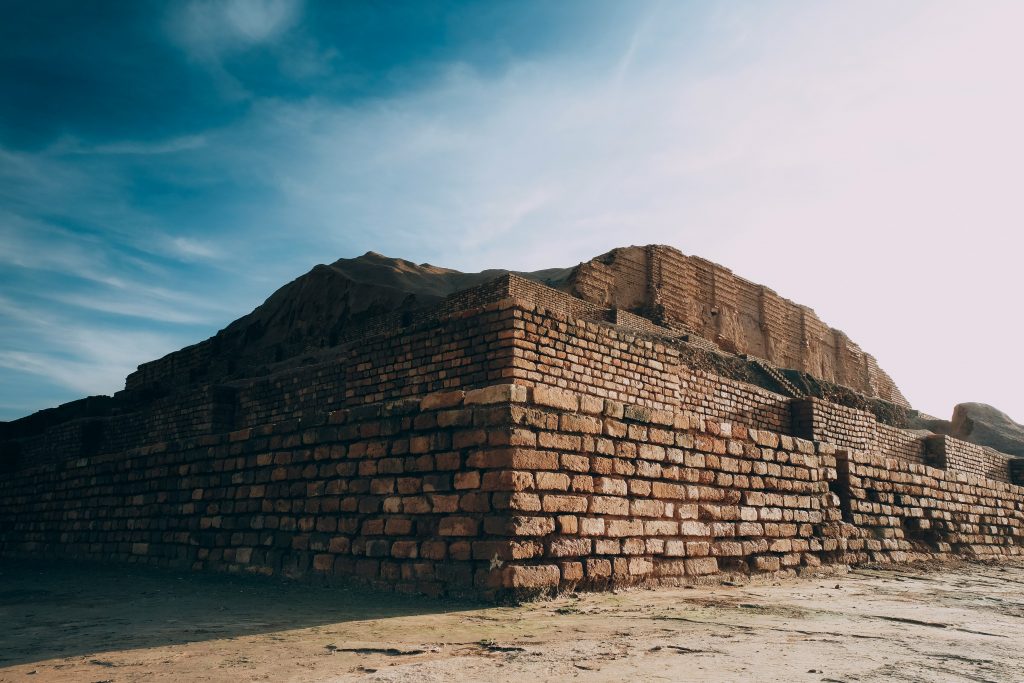


When the Apostle John wrote about the Second Coming of Jesus, he described a war between two great cities — the heavenly city and Babylon. His first century audience, living under the might of the Roman Empire, may have found this bizarre because the Babylonian Empire had collapsed more than five centuries earlier. Yet in John’s vision, King Jesus led a triumphant campaign — rescuing His bride, judging the wicked, destroying Babylon, and unveiling an everlasting kingdom of righteousness.
So why is Babylon considered the archenemy of God? Perhaps the most obvious answer is that they destroyed Solomon’s Temple, burned Jerusalem to the ground, and led the Israelites into exile in 586 BC. But let’s go back even further… to the founding of Babylon. Only one chapter after God made a covenant of mercy with Noah, the city Babel was founded as an act of overt rebellion against the Lord—a brazen rejection of God. The names Babel and Babylon have the same root word—confusion. As the biblical narrative develops, Babel grows up into the great empire Babylon, and Babylon became the biblical symbol for all human kingdoms set against God.
Prior to the Flood, the wickedness of mankind had intensified rapidly. Our first parents rebelled against God (Gen. 3:6); the next generation saw fratricide and the construction of a wicked city (Gen. 4:8). Subsequent generations produced advanced weaponry (Gen. 4:22) and launched threats of genocidal vengeance (Gen. 4:24). Then came the Flood. Even still, mankind’s rebellion against the Lord did not cease; it only intensified.
In Genesis 10-11, Babel emerges as the great archetype of the wicked kingdoms of men. Nimrod, its founder, established the world’s first kingdom that included great cities of antiquity, but this was no benevolent kingdom. The name Nimrod literally means “rebellious one.” He was described as the “first on earth to be a mighty man,” (Gen. 10:8) an expression suggesting that he was a powerful warlord. Worst of all, we are repeatedly told that Nimrod was a “mighty hunter before the Lord” (Gen. 10:9). A verbatim translation would be “in the face of the Lord.” To summarize, Nimrod was a rebellious warlord seeking to establish an earthly kingdom in opposition to God.
Every bit of Babylon’s founding charter was rooted in rebellion. They wanted to create a city for themselves. Rather than advancing God’s kingdom, they cared only for their own. They wanted to build “a tower with its top in the heavens.” Why? The architects of Babel were not trying to reach God; they were trying to replace Him. In the ancient world, such towers (or ziggurats) were constructed all throughout Mesopotamia. When a king ascended to the pinnacle of these structures, he would claim divine authority to rule over the people. Look at the Babylonian Code of Hammurabi, and you will notice that this basalt stone is shaped like a tower with King Hammurabi at its peak receiving a divine mandate from the sun god. With this tower, Nimrod could lead a coup d’état to seize God’s authority over the people.
Rather than seeking to exalt God’s name, they sought to make a name for themselves. And finally, they were building the city to blatantly disobey God’s command. In the first chapter of Genesis, God gave marching orders to mankind. He wanted them to take His design and the beauty of the Garden of Eden to the ends of the earth. Adam was charged to “fill the earth and subdue it” (Gen. 1:28). The residents of Babel refused to be dispersed to the ends of the earth. They had absolutely no interest in carrying out God’s will.
If Babylon had a pledge of allegiance, it might sound something like this: “I pledge allegiance to MY authority, not God’s; MY name, not God’s; MY kingdom, not God’s; and MY will, not God’s.” Our fallen nature invariably draws us toward this disastrous set of ethics where we take our place at the center of the universe. Apart from faith and the grace of God, its allure is far too powerful to resist. Thankfully, God staged a counterinsurgency!
If Babylon had a pledge of allegiance, they would say, "I pledge allegiance to MY authority, not God’s; MY name, not God’s; MY kingdom, not God’s; and MY will, not God’s.”
One chapter later, we are introduced to Abraham — the “father of our faith,” and we encounter a radically different set of ethics. Though Abraham is tremendously wealthy, he is not interested in founding a city for himself, because Abraham was “looking forward to the city that has foundations, whose designer and builder is God” (Heb. 11:10). Rather than usurping God’s authority over society, he recognized that Yahweh is “God Most High, Possessor of heaven and earth” (Gen. 14:22). Abraham was not set on making a name for himself because God had already promised him: “I will…make your name great” (Gen. 12:2). Lastly, unlike Babel, Abraham did not stubbornly refuse to be scattered. He embraced God’s will for his life. When God came and told Abraham to “go,” we are told that “Abram went” (Gen. 12:4).
Like Abraham, we have been invited to participate in a revolutionary plan to overthrow the schemes of hell—an invasion of heaven into this earth. Before His ascension, Jesus declared that He has been given “all authority in heaven and on earth,” and He commanded His followers to “go therefore” to bring the nations under the authority of our King—baptizing them “in the name of the Father and of the Son and of the Holy Spirit” (Matt. 28:18-19). As Christians, our ethics are radically different than Babylon’s. Our pledge might sound like this: “Jesus, I yield to YOUR authority, not mine. I want to exalt YOUR name, not mine. I exist to serve YOUR kingdom, not mine. And I will submit my life to YOUR will, not mine.”
Is it any wonder that this echoes Christ’s model prayer for us? Prayer is not merely an appeal for God to move; it is a defiant rejection of Babylon itself. It is the heartfelt cry of a subject who desperately wants to see the exaltation of his King in our world today. As we daily wage war against the rebellious powers of man in our midst, let us pray like this: “Our Father in heaven, hallowed be your name. Your kingdom come, Your will be done, on earth as it is in heaven.” (Mt. 6:9-10)

No spam, stay up to date on new articles, resources and events!
Get notified about new articles from the Institute.